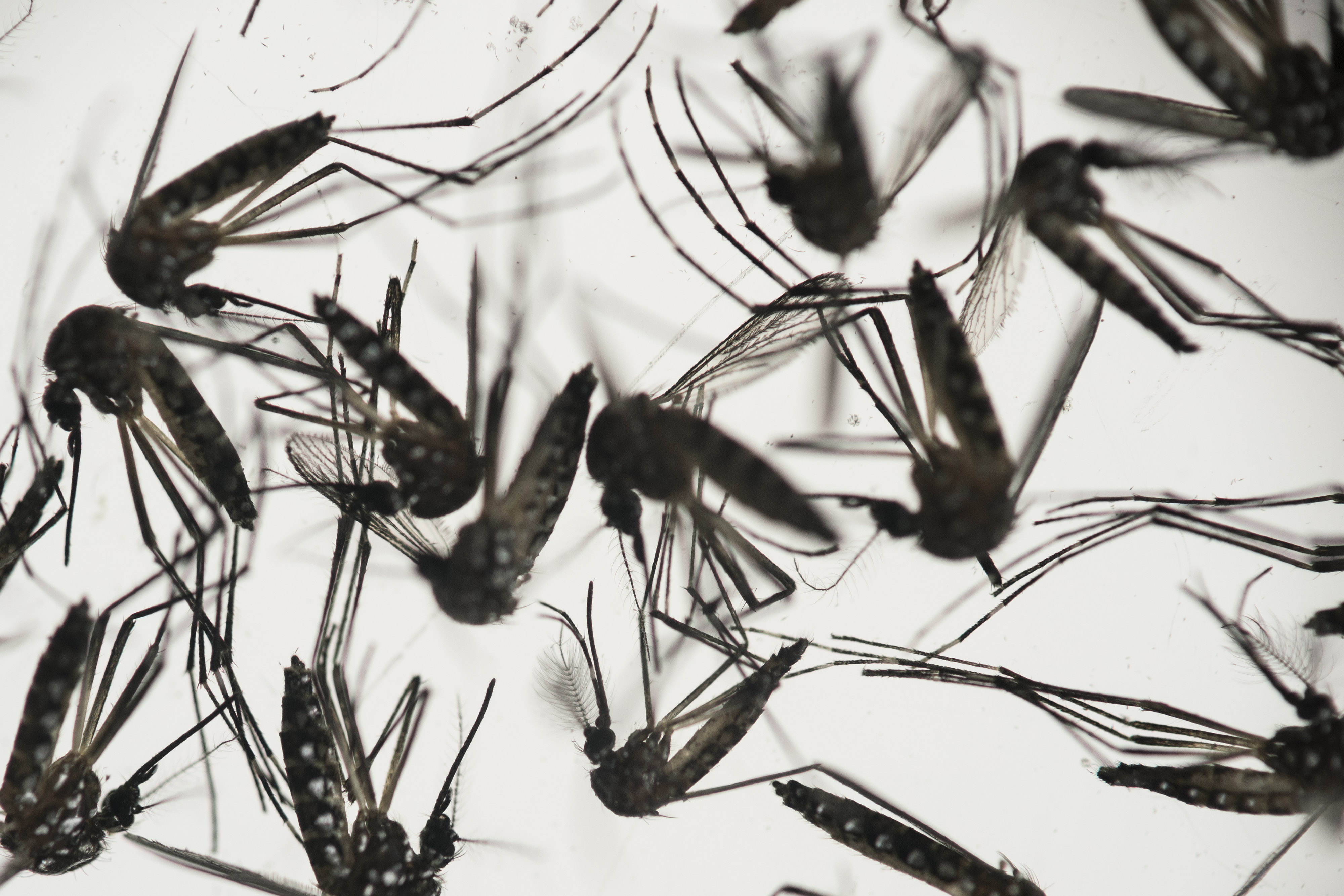
Ken Summers was strong and athletic - a runner. Now the 62-year-old former Republican state lawmaker needs crutches to get around.
“I’d probably rather have the opportunity to win the financial lottery instead of the healthcare crisis lottery," said Summers, a former pastor and resident of Fort Collins. "Because it certainly shows how brief life can be.”
Three years ago, Summers had a high fever, weakness, and severe headache. He was hospitalized and diagnosed with a serious, sometimes deadly brain virus.
“They finally determined that I had encephalitis caused by West Nile virus, and then additionally had diagnosed me with meningitis,” he said.
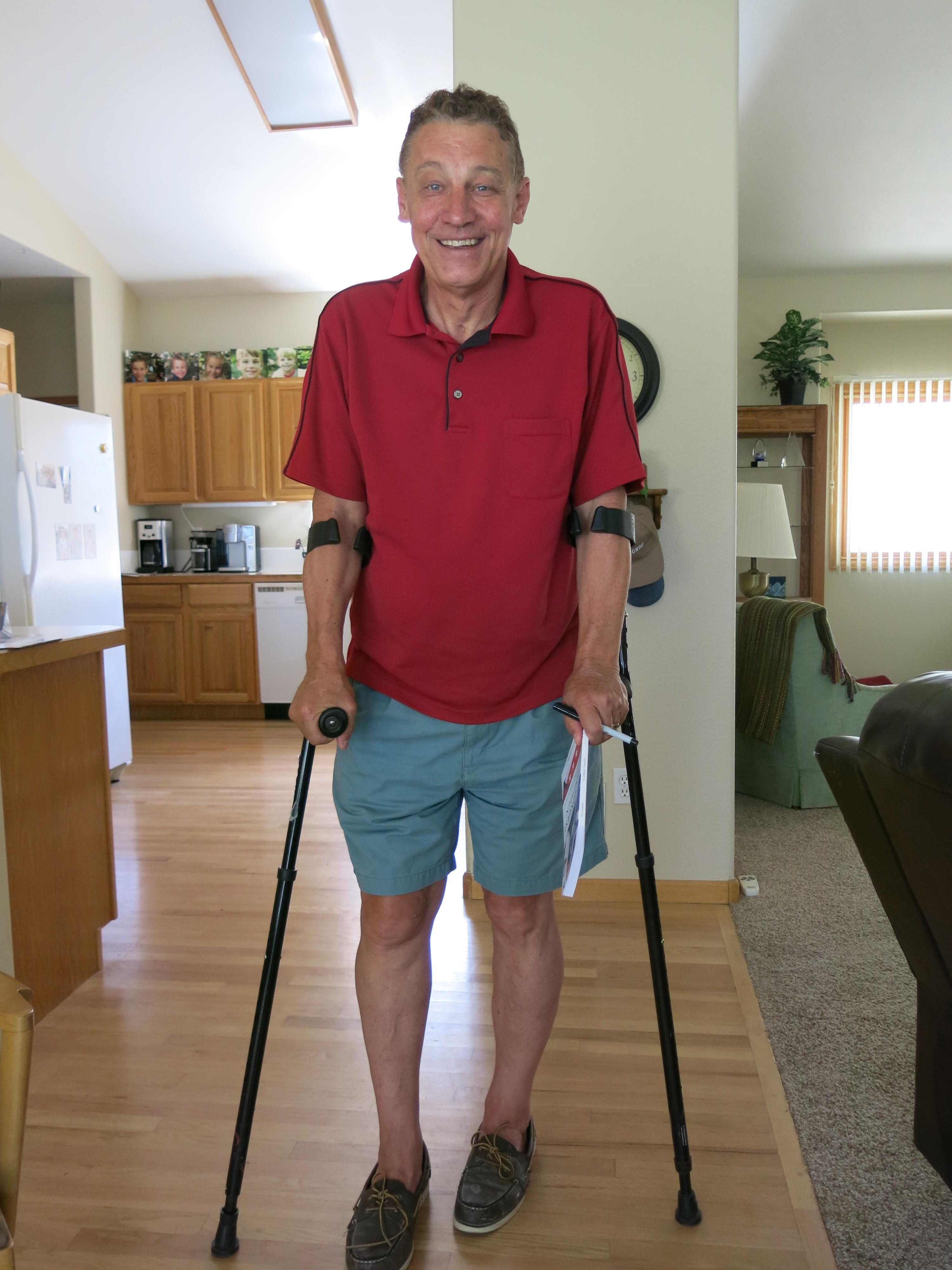
Most people with West Nile don’t get very sick. But a small number, like Summers, do. He was hospitalized for five months, lost 40 pounds and nearly died.
“To me that was quite the enigma," said Summers. "I didn’t remember mosquitoes being bad, I didn’t remember being bitten.”
Mosquitoes are the transmitters, also called vectors, of the West Nile virus. Climate change could have an impact globally on the insects that carry some very serious diseases like dengue fever, chikungunya, malaria - and Zika, the one that may be a game changer in terms of public interest.
“It seems there’s been a lot more interest since the emergence of Zika in the Americas," said Mary Hayden, a research scientist with the National Center for Atmospheric Research. She co-authored part of a recent study on climate change vulnerability in Colorado. Hayden says human health and climate are often related, but it’s complicated.
“We know that climate plays a critical role in the developmental stages of the mosquitoes," said Hayden.
Climate change isn’t the only factor, but Hayden says rising temperatures could help spread some diseases because the mosquitos that carry them survive in more places.
“There are so many other factors that come into play," said Hayden. "A lot of it has to do with living in an interconnected world." She says that world is increasingly interconnected because of global trade and travel, which also are key factors in the spread of infectious diseases and the bugs that can carry them.
Mike Antolin, a CSU biology professor who has studied infectious diseases in wildlife, agrees. He says international travelers need to be aware of diseases like Zika, even though the mosquito that carries it doesn’t live naturally in Colorado.
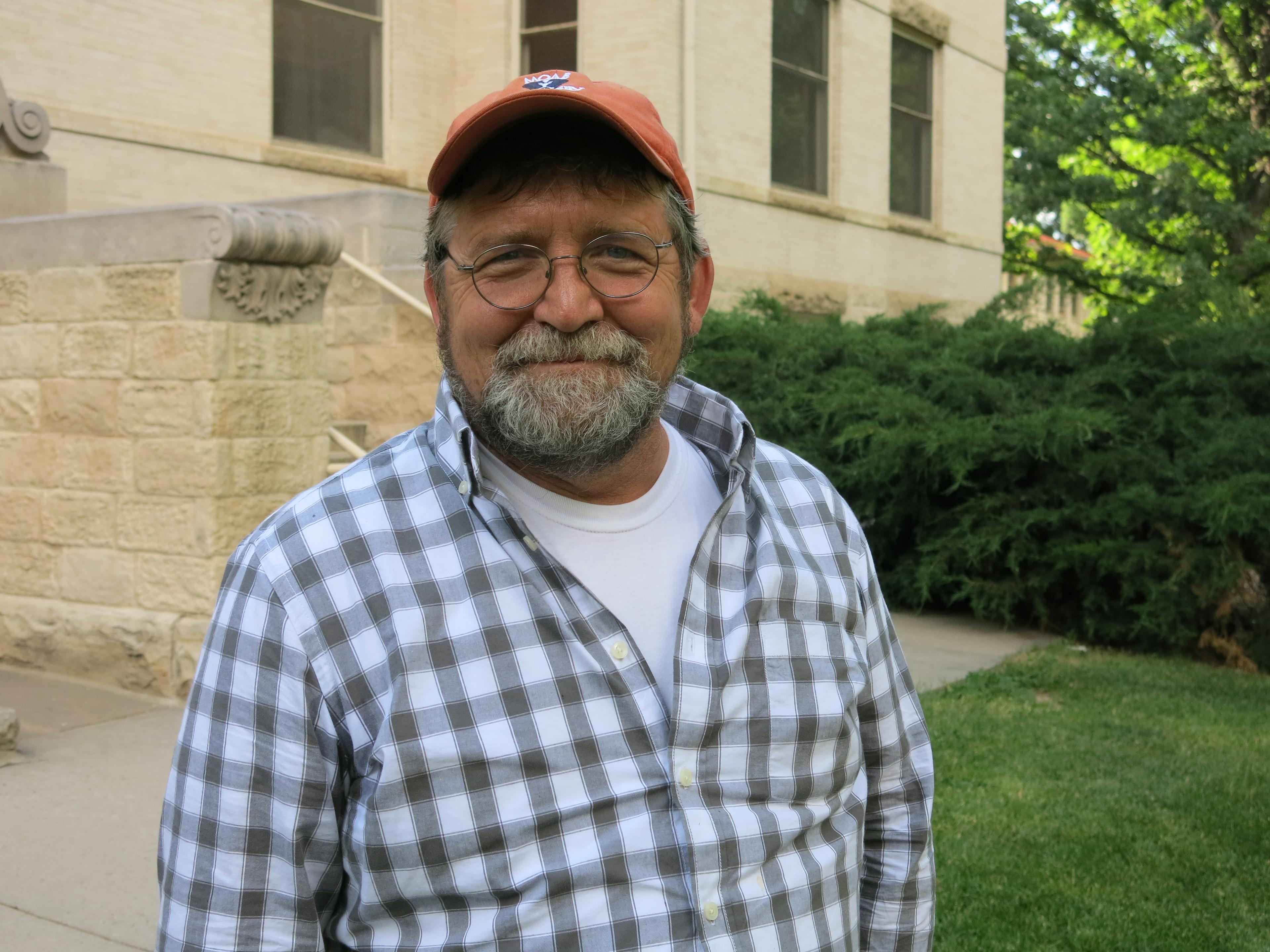
“I don’t think we’re going to have Zika coming this far west, north or in high altitude as where we are here," said Antolin.
But Antolin says Colorado is seeing higher nighttime lows and longer warm seasons and those changes could affect the global distribution of infectious diseases and species that carry them. It’s not only insects like mosquitoes, ticks and fleas.
Antolin says Colorado’s robins, a host for the West Nile virus, no longer migrate. All these factors can affect human health, but Antolin says it’s not clear how.
“It means some of the predictability that we may have had about expecting when disease risk occurs goes out the window."
The Colorado climate change vulnerability report states mosquitoes, fleas and ticks are "vectors" for diseases in Colorado that can cause serious illness, and even be fatal. Those diseases include West Nile virus, hantavirus, plague, rabies, tularemia, and disease transmitted by ticks. But the report says "predicting climate-related changes to their distribution is extremely difficult due to the complexity of their transmission cycles as well as the effects of human behavior, which can facilitate or hinder" the diseases' spread.
In a Denver lab, Michael "Doc" Weissman, who's chief entomologist at Colorado Mosquito Control, adds another perspective.
“There’s a lot more going on in the world out there than just climate change."
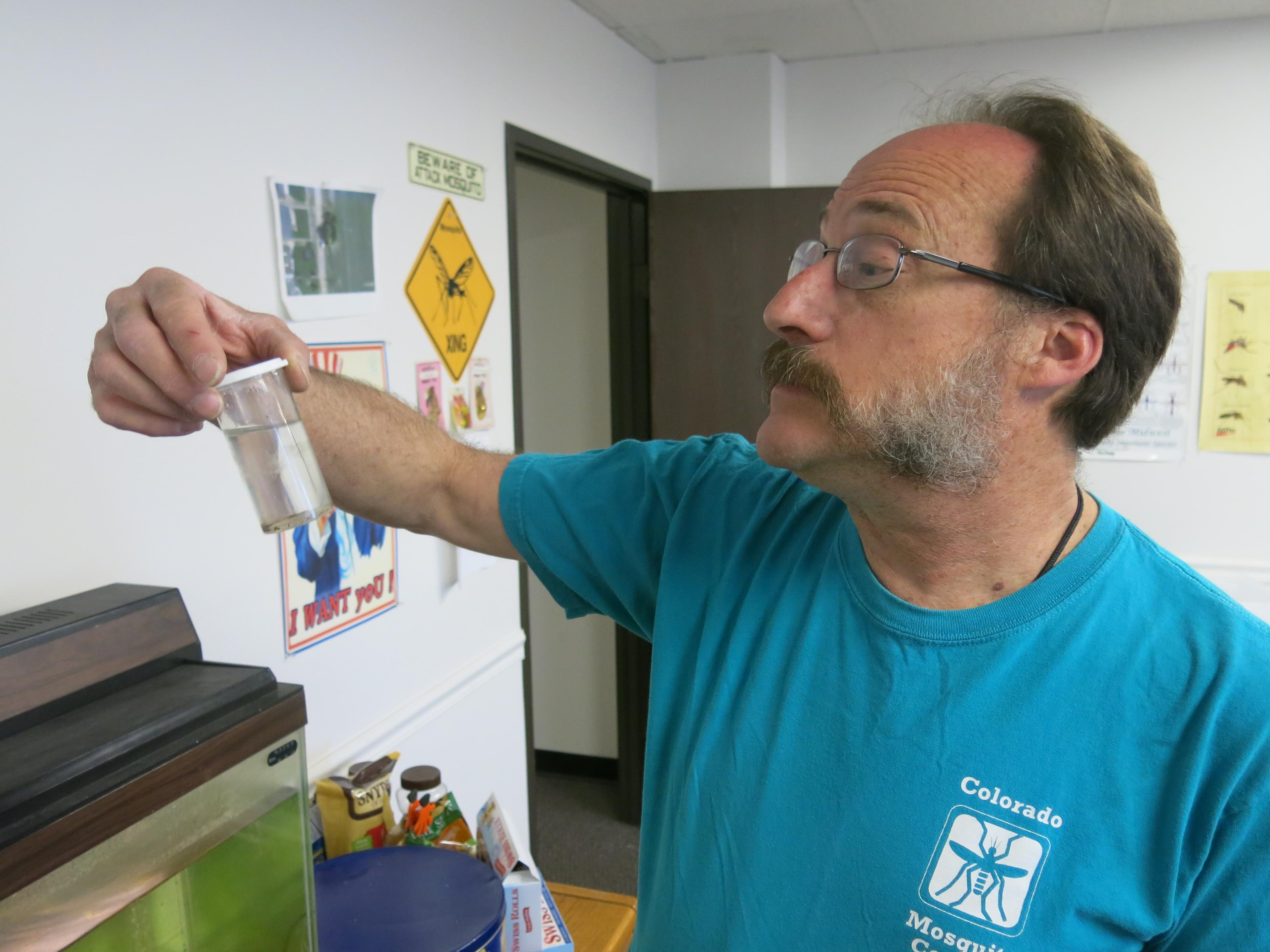
Colorado Mosquito Control is a private company that works with towns and counties to track mosquitoes and control breeding. Weissman says humans are giving the insects that transmit infectious disease an advantage, by making intentional changes to the environment.
“There’s a lot of effects other than climate change. Habitat destruction, habitat alteration is a huge one," said Weissman.
Weissman shows side by side photos of an original building, Old Main, on the CU campus. In the 1800s, the building was surrounded by prairie with barely a tree in sight. Today it's in the midst of a vast urban forest. He says all over the state, humans have changed the environment and made life a lot easier for mosquitoes.
"Now you’ve got retention ponds, detention ponds, gravel quarries that are filled with water instead of dirt," said Weissman. "You’ve got landscaping that requires a lot of water, you’ve got shady trees.”
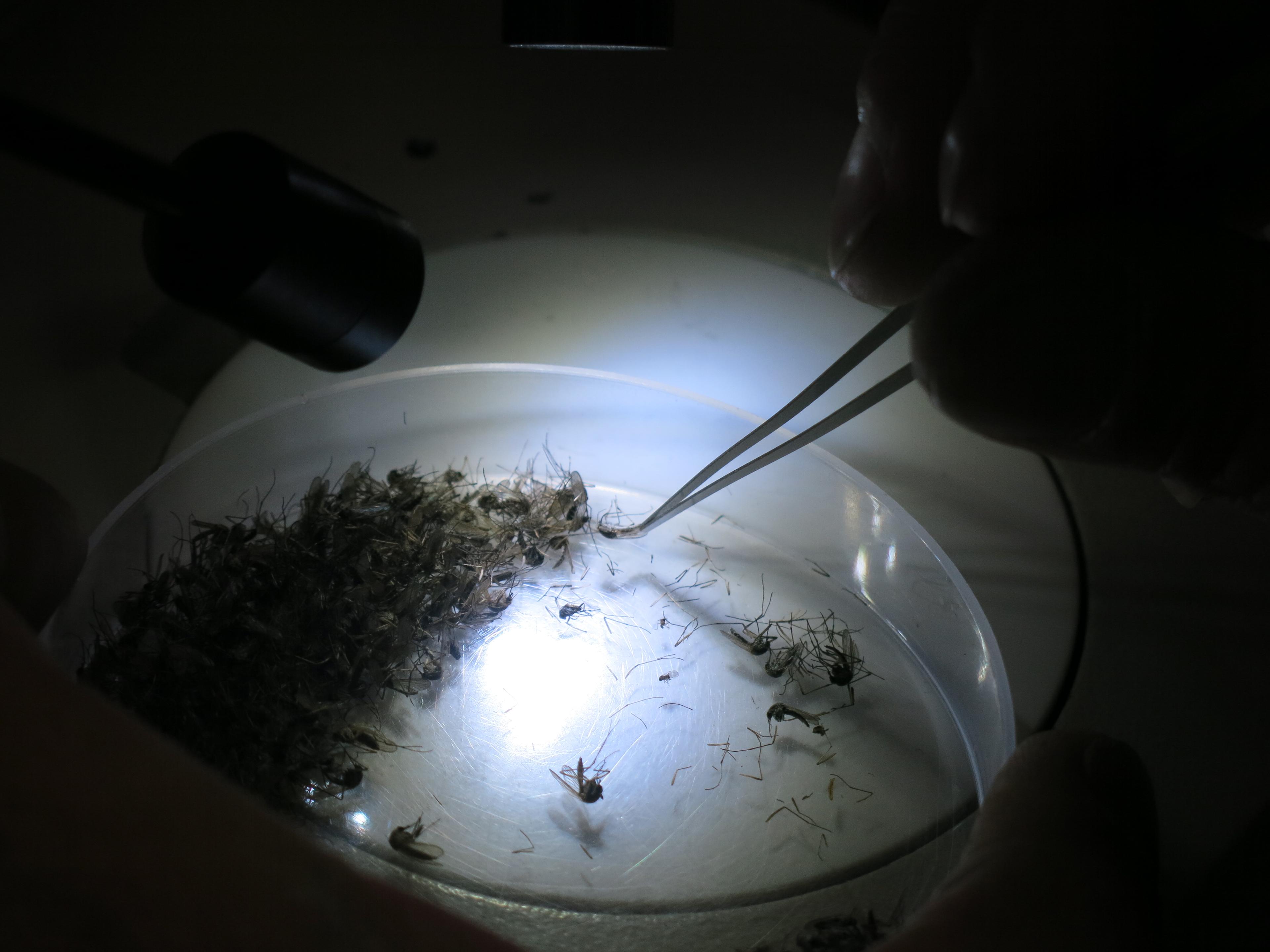
He says people can reduce the population of disease-transmitting insects around their homes by draining standing water, in things like old tires or watering cans, even replacing grass lawns with less thirsty plants.
A spokesman for Colorado's health department underscored the challenges in predicting what impact climate change might have on the spread of infectious disease to humans.
"There is no way of estimating what percentage of diseases could be attributed to climate change versus normal weather variations and increased awareness," said Mark Salley, Director of Communications for the Colorado Department of Public Health and Environment, in an email.
Mary Hayden, the Colorado climate vulnerability report co-author, says in a warming world it’ll be important for people to know when it’s a bad mosquito season in their town. "One can only hope that people will start to pay attention to these linkages.”
West Nile survivor Ken Summers says his illness has made him more aware of the risks of infectious disease. He’s written a book about his fight, called The Longest Campaign. “Now it’s a whole new world, a whole new normal for me that’s changed my life and created a great deal of adjustment," said Summers.
Summers book outlines the lessons he learned fighting the life-threatening virus. One lesson, he says, is practical: wear bug repellent.








